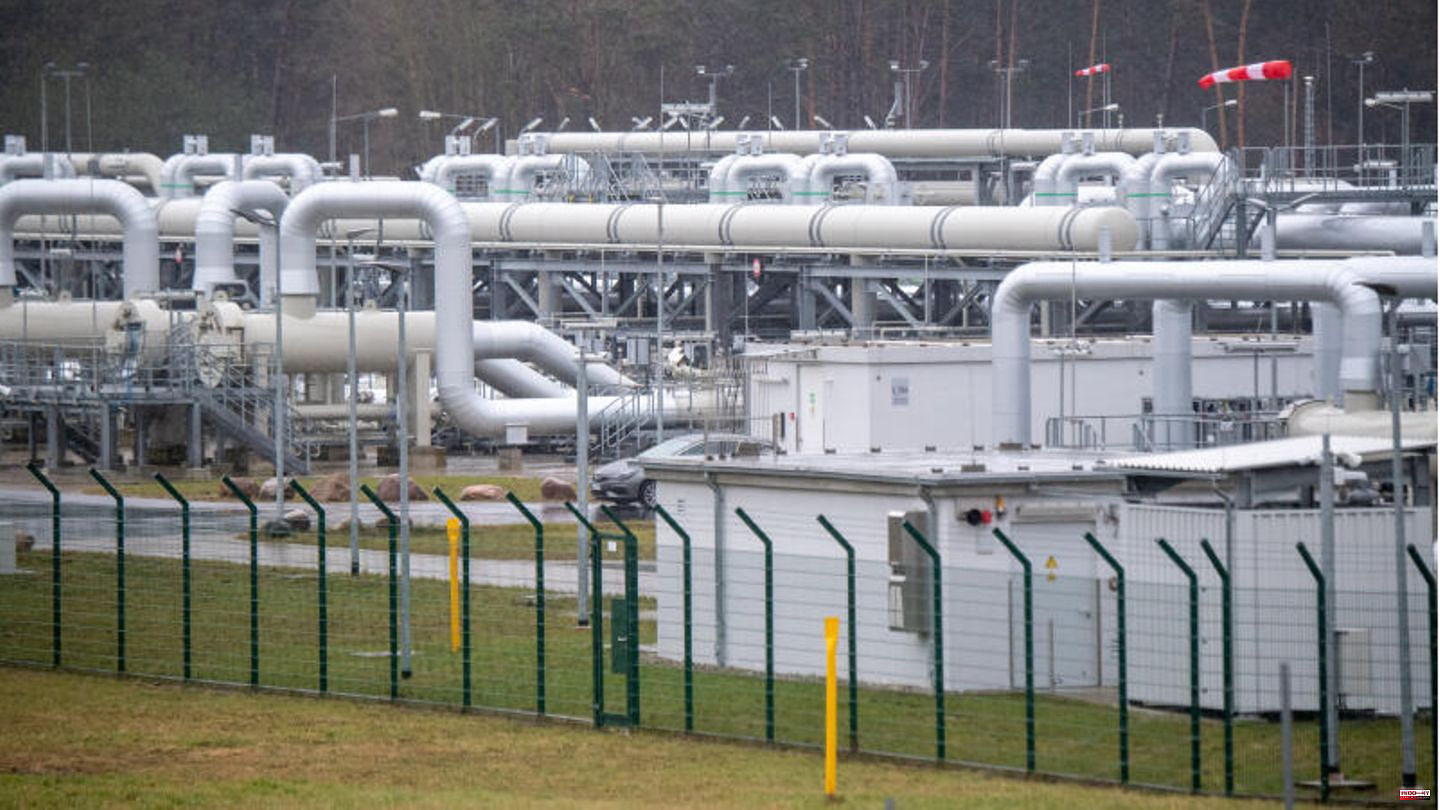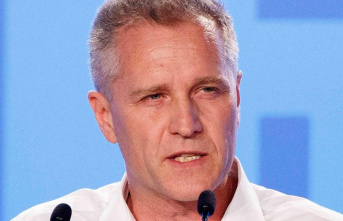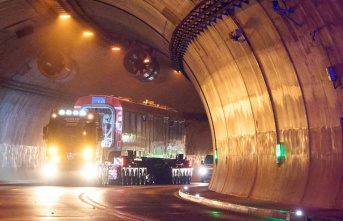US sanctions shortly before the Russian invasion of Ukraine brought the operator of the controversial Nord Stream 2 Baltic Sea gas pipeline to the brink of ruin. The pipeline with two 1,230-kilometer lines between Russia and Germany was completed a year ago, but never went into operation because of the war. Nord Stream 2 AG, a subsidiary of the Russian gas group Gazprom, is based in the tax-efficient Swiss canton of Zug. The economics authority there spoke of major payment difficulties in March. The cantonal court gave the company a gallows period until September 10: a provisional debt restructuring moratorium to examine restructuring options. It also appointed a trustee to oversee the business.
"There is no longer any operation and we are no longer in the driver's seat," says Nord Stream 2 spokesman Ulrich Lissek of the German Press Agency. "We support the administrator. We identify which contracts have been concluded with whom, what legal obligations we have and what technical or environmental assessments may be required so that he can get an overview of the company." There are still around 30 to 40 employees out of the original 230, but their contracts are expiring. "We are doomed to wait and see," says Lissek.
When it comes to questions about the future, he refers to the administrator, the Swiss company Transliq. Phillipp Possa from Transliq, on the other hand, told the dpa: “The management is still with Nord Stream 2 AG. The administrator has “only” a monitoring function.” Transliq does not want to comment any further.
According to the cantonal court, there are three options: The temporary arrangement could be extended if the prospects of a renovation are still being explored. However, it could also be converted into a definitive debt restructuring moratorium if either the prospects for a full restructuring are good or a debt restructuring agreement with the creditors with partial debt relief becomes apparent. Third option is bankruptcy. It is opened when the company is over-indebted, i.e. its assets no longer cover the sum of its debts.
"Essentially, at the beginning it's about getting an overview and securing the inventory," says the head of the bankruptcy office, Andreas Hess, of the dpa. According to the State Secretariat for Economic Affairs, in the event of bankruptcy, all assets, real estate, machines, accounts and the like are included in the bankruptcy estate and, if possible, sold. Creditors have a right of first refusal, as Transliq does not explain in a specific case, but in general on its website. If no buyer is found, it will be auctioned off. Creditors are paid from the proceeds, usually only a fraction of the claims. Remaining debts are cleared.
Nord Stream 2 AG cannot do any business because of the US sanctions, the takeover would be illegal for any buyer. A finished pipeline should not be easy to sell for the bankruptcy office either. How that could work is unclear. "That's a point we'll think about when the time comes," says Hess, head of the bankruptcy office.
Gazprom paid for half of the pipeline, the other half was financed by five companies, including Germany's Uniper and Wintershall Dea. Both have already written off the billions invested. "We will examine all possibilities to collect the written off claims in whole or in part," Winterhall Dea told the dpa. "A legal review is currently being carried out as to whether it is possible to recover part or all of the loans made," Uniper also announced.
The Stralsund Mining Authority is responsible. "The mining authority is in contact with the employees of Nord Stream 2 AG to monitor the pipeline," says Gunnar Bauer, spokesman for the higher-level Ministry of Economics in Mecklenburg-Western Pomerania. In addition to Nord Stream 2 personnel, the company Gascade is also responsible at the end point in Lubmin. "The system is in an operationally safe condition," it says from there. The mining authority also has no concerns at the moment, says Bauer: "Independent experts certified the tightness and strength of the pipeline at the end of 2021." In the event of bankruptcy, Bauer says: "It would be possible for the Gascade to cover the monitoring of the systems."
The German Environmental Aid, which fought the project from the start, speaks of a "ticking time bomb", partly because the pipeline is filled with gas. In the event of a leak, a collision with a submarine, an attack or if a sea mine from the past, which is still active, is drifting against it, gas is in danger of reaching the surface and exploding, says Federal Managing Director Sascha Müller-Kraenner. Even an empty pipeline would be a problem. The obstacle on the seabed affects animals. Like the FDP parliamentary group, he is demanding that the pipeline be dismantled.
The company Deutsche Regas would like to dock directly with the Nord Stream 2 pipelines at sea in order to feed in natural gas. According to plans, this would be delivered by ship as liquefied natural gas (LNG). With regard to the conversion to LNG, the Federal Ministry of Economics says: "We are not currently pursuing these plans." Probably also because you would first have to gain access to the system, for example through expropriation. Instead, Deutsche Regas is initially planning to ship LNG directly to the port of Lubmin from December. However, the quantities would be lower than if the pipeline were used.
The federal government is planning another floating LNG terminal off Lubmin by the end of 2023. Then the use of the Nord Stream 2 lines could become an issue again.












